
Nineteen-year-old Zeke Alicea had a plan for his future that included a four-year degree. He was interested in the legal field, but nothing really clicked until a criminology professor discussed the role of court reporters. Alicea decided to turn in his $50,000/year tuition for a court reporting degree at community college.
UTS | You started your education at Marquette University, in Milwaukee, Wis., and then transferred to MacCormac College in Chicago, Ill. Why did you make the switch?
ZA | At Marquette, I was majoring in Clinical Laboratory Science. However, as I went through my first semester, I started to lose interest and look into other majors. I especially had a great interest in criminology. I was thinking I could be a lawyer, detective, forensic scientist, or even a criminologist. One day during one of my criminology lectures, my professor was telling us all the positions in the courtroom. One of them was obviously the court reporter. She told my class how it’s a profitable career and shared some of the skills required for being a court reporter. That was the first time I had ever heard of court reporting, and it immediately piqued my interest. I also noticed that people who are gamers or musicians have a tendency to do well in court reporting school.
Another reason was that I wanted to be back home with my family. Being at Marquette made me miss a lot of my close friends and family, and I like the control that I feel I have at home rather than living in a dorm. I also love being in Chicago since it’s an environment I’ve lived in all my life. Lastly, I made the switch because of the tuition at Marquette. The tuition was around $50,000. Of course, scholarships reduced the cost, but the tuition was still very high. The tuition at MacCormac is comparable to the tuition of a community college in Chicago. It’s very inexpensive at MacCormac, and now I don’t need to worry about finances while in school.
UTS | Have you met any court reporters or captioners? What have you learned from them?
ZA | I’ve met quite a handful ever since I started school at MacCormac. The nice thing about court reporting is that it’s extremely easy to make connections since there are so few of us. I’ve met higher speed students, working court reporters, and even court reporters who have their own firms. From all the court reporters I have met, I firmly believe that just about anyone can pursue a career in court reporting as long as you have a strong determination.
UTS |What has surprised you most about learning steno?
ZA | I think it’s really interesting that there are so many different theories for steno. Before I enrolled at MacCormac, I thought that every court reporter wrote shorthand the same way. I quickly learned that was not the case. I know that a lot of older theories would have you stroke out words phonetically, but a lot of the newer theories teach many neat briefs for those multisyllabic words. Another thing I like about steno is sharing my briefs and phrases with higher speed students who have learned a different theory. Occasionally, they will actually like my suggestions and incorporate those briefs in their dictionary. Lastly, I love how individualized it is when it comes to learning steno. One thing I noticed is not everybody strokes things the same way. One of my friends in class uses the “*F” for words that have a “V” in them while I use “-FB.” Furthermore, once you start becoming more settled with your theory, you can even start making up your own briefs and phrases.
UTS | What is the best advice you’ve been given so far?
ZA | The best advice I have been given is to start building your dictionary as soon as you can. Something about knowing that everything you stroke is going to translate on your real-time software really makes me feel reassured. There are also times when I’ll have a test, and just about everything translates. It’s a really exciting feeling, and it really builds up your confidence in your writing. Another great piece of advice I heard is to look at the person who is speaking when reporting. This might just be more of a personal preference, but I feel more focused when I’m watching the person who’s speaking.
UTS | If you were to go to a high school career fair to recruit students, what would you say to them about a career in court reporting and captioning?
ZA | I would tell them that it’s in high demand and that there’s practically 100 percent job availability when you graduate. I would tell them you only need a two-year degree to be a court reporter and that there’s a high earning potential. Their age is the perfect time to get into court reporting since our minds are still developing, so we’re able to absorb information easily. (That will be very handy when learning the ridiculous amounts of phrases and briefs.) I would tell them that having a background in music or video games can help, and even if you’re not into either of those, you can still do well in this field. And lastly, I would tell them how much a fun career in court reporting is. Every day when I’m court reporting, I’m always learning something new, and I always get to hear interesting court stories.
UTS | What is your dream job? Where do you see yourself in five years?
ZA | My dream job would be, well, a court reporter! I definitely would like to have the opportunity as a court reporter to provide captions for a Cubs game! In five years, I will be with a court reporting firm and downtown (I’m not that into the whole freelance reporting gig), and I would also like to be participating in speed competitions at that time. I would also want to be known as a trustworthy and distinguished court reporter who is very passionate about his job.
MacCormac College’s court reporting program was recently featured on Chicago Tonight, a local PBS program. Watch the news story and a television interview with Alicea here.





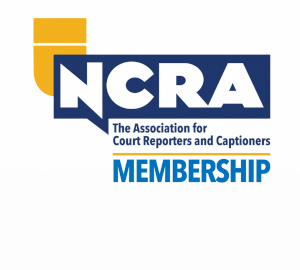

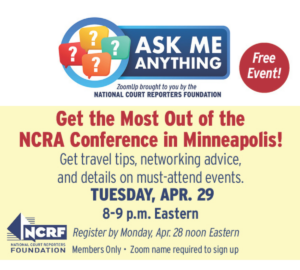
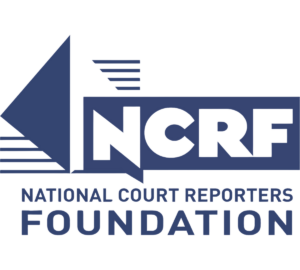

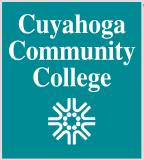
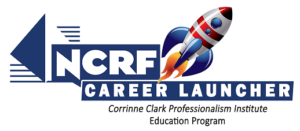



[…] Well, maybe a few years ago, we could’ve agreed. But this was written August 6, 2019, when stenography is headed back into a steep incline. Programs are picking up stenography. Established programs like Plaza College are creating more awareness through newsworthy events like the court reporting symposium. Several stenographic initiatives have drummed up support and interest for this wonderful field. Just to name a few, NCRA’s A to Z program, Open Steno, Stenotrain, and Project Steno. There are stenographers all around the country asking their local college programs to consider beginning a stenographic course, and interest in the field is ramping up. […]